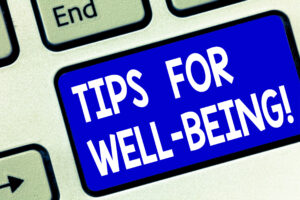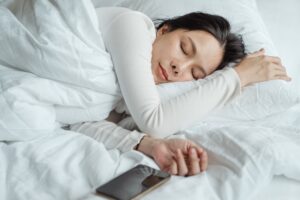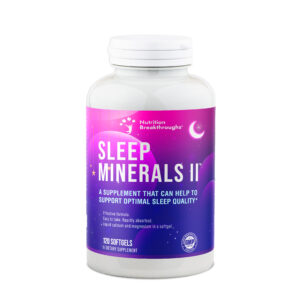Research scientists are discovering more and more ways to help people remedy insomnia and sleep better with simple nutrition and lifestyle improvements
Almost six out of ten Americans experience insomnia and sleep problems at least a few nights a week, as reported in a recent study done by the National Sleep Foundation.
Insomnia is defined as “An inability to fall asleep or remain asleep long enough to feel rested, especially when the problem continues over time.”
In an effort to combat this, as many as twenty-five percent of the people in the U.S. turn to sleep drugs. Because most people would prefer to avoid the side effects and addiction of sleep medications, research scientists have been busy studying nutritional and lifestyle approaches to getting better sleep.
Tip # 1 – We live in an electronics-oriented world, from computers, to cell phones, to texting, to reading books on tablets. These tools help increase our efficiency and ability to work and learn and communicate, but when it comes to getting good sound sleep, they can interfere.
One study from a university in New York found that exposure to light from electronic displays can suppress melatonin by about twenty two percent. Melatonin is a hormone made in the brain that helps to regulate the sleep/wake cycle. It is present in higher amounts at night. The researchers recommend shutting off all electronic devices at least one hour before bedtime and doing some relaxing things before bed.
Tip # 2 – Regarding sounder, deeper sleep resulting from taking walks, studies at the University of Arizona have found that walking more than six blocks a day at a normal pace significantly improves sleep at night for women.
Scientists suspect that walking helps to set our biological clock into a consistent sleep pattern. Walking can help increase “endorphins”, which are protein-like chemicals made in the brain that can have a relaxing effect, a pain-relieving effect, and can also reduce stress and increase well-being.
Tip # 3 – Sometimes hunger can strike at 2:00 or 3:00 in the morning and keep one awake. If this occurs, eat something with high protein such as turkey. Turkey contains tryptophan, which is an amino acid (a component of protein) that has a calming effect. According to Ray Sahelian, M.D., “Tryptophan ….can be converted at night into melatonin, the sleep-inducing hormone.”
As a note, concentrated tryptophan capsules are not recommended as they can create grogginess in the morning and take some time to wear off. Other foods that are high in tryptophan include nuts, seeds, chicken, fish, oats, beans, lentils, and eggs.
Tip # 4 – When taking natural sleep aids, it’s good to remember that each person is a unique individual and doing some experimenting with the dosage can be instrumental in achieving success. At first, err on the side of taking too little rather than too much. Another thing to keep in mind is that natural aids are not drugs and they may not work immediately with the first dose or even the first few doses. It can take up to a couple weeks to see results.
James F. Balch, M.D., author of Prescription for Nutritional Healing, writes: “A lack of the nutrients calcium and magnesium will cause you to wake up after a few hours and not be able to return to sleep.”
In one study published in the European Neurology Journal, researchers found that calcium levels in the body are higher during some of the deepest levels of sleep, such as the rapid eye movement (REM) phase. In the study, taking calcium restored normal sleep patterns.
One example of a mineral-based sleep remedy is Sleep Minerals II from Nutrition Breakthroughs. This sleep aid contains highly absorbable forms of calcium, magnesium and vitamin D. The ingredients are delivered in a softgel form with healthy carrier oils, making them more easily assimilated than capsules or tablets and providing a deeper, longer-lasting sleep.
Richard P. of Parkville, Maryland says: “The Sleep Minerals are making quite a difference. I was regularly waking up at around 3:00 a.m. and after a few days use my sleep improved quite a lot. I wake up once a night to go to the bathroom, but the great thing is, I then fall back asleep and sleep several more hours. This has been a great improvement.”
In summary, take the tips of recent research studies and take a walk each day, put the computers and cell phones away an hour before bedtime and do something relaxing, keep a high-tryprophan snack next to your bed at night, and use an effective form of calcium and magnesium before bed for a deeper, longer night’s sleep.
For more information on Sleep Minerals II, visit this page.










